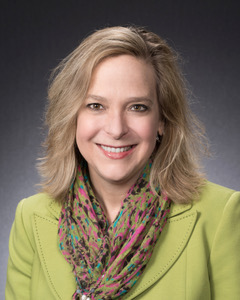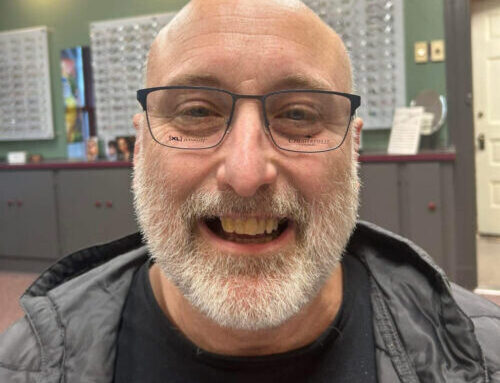by Catherine Boyle, Director of Mental Health Ministry, Key Ministry. (see bio below)
A few weeks ago, I came across some old notes I saved from April 2015 for a still-unwritten book. In those notes was a website link to Key Ministry. For six months leading up to those April notes, I had been sensing God calling me back to ministry, specifically ministry to and with people with some form of mental illness. At the time, I was working in a secular corporate job, earning money to prepare for our kids’ college years. But before that, for more than a decade when my kids were young, I wrote and spoke about my experience with eating disorder and how God’s love helped me heal. I even worked as a full-time volunteer for three and a half years for a ministry startup, a transitional home for women working to overcome their own eating disorders.
I’d been in church almost my whole life, and I knew how seldom “mental illness” was a sermon or Sunday School topic. In April 2015, “mental health ministry” occupied very little internet space. But God made it abundantly clear, through answered prayers, scripture, conversations
with some local church leaders and quite honestly a very challenging time in the life of my family that mental health ministry could not wait. Later that summer, I launched Outside In Ministries, a 501(c)3 non-profit organization whose mission was to educate, equip and empower churches to minister to and with individuals and families living with mental illness. In November 2016, the founder and president of Key Ministry, Dr. Steve Grcevich, was the keynote speaker for a conference hosted by Outside In, to help churches and ministry leaders learn how to better serve individuals and families living with mental health needs.
Fast-forward to the last eighteen months: I was honored to join the Key Ministry team in June 2018 as Mental Health Ministry Director. In my role, I get to see what’s being done across the landscape of mental health ministry in the United States and beyond. Taken as a whole,
churches have a growing understanding that they play a critical part in serving individuals and families with what we call ‘hidden disabilities,’ or mental health needs. I also get to work on finding the resources, training and information to meet specific ministry needs, and to help
develop new training and tools that are part of the Key Ministry suite of resources.
Research shows that even with all of the medical innovations and information available about mental heath conditions, people still seek help for a mental health need first from a church or ministry leader more than any other resource, even before their primary care doctor. (LINK #1)
Further, anecdotal evidence and emerging research shows that people with a mental illness recover faster and more thoroughly when their faith is incorporated into their mental health treatment. (see below – LINK #2, 3 and 4). Ministry leaders have come to understand that helping someone with a mental health need is more than just handing over a referral list. It is increasingly common to hear of churches seeking mental health related training for their staff and lay leadership, such as Mental Health First Aid or trauma-informed courses.
In my role as mental health ministry director, I interact with churches from many denominations, as well as many organizations that develop training or specialized expertise to support people with mental health needs, whether mental illness or neurological conditions like autism. Even the government recognizes that churches have an important role to play in supporting individuals and families with mental health needs: Dr. Grcevich and Key Ministry have been part of a diverse working group organized by the Office of Faith-Based Initiatives of the US Department of Health and Human Services to help churches learn how to support local mental health needs.
Each year, Key Ministry hosts one of the largest disability ministry conferences in the United States. Inclusion Fusion 2019 focused significantly on mental health ministry, both the need for such ministry and how local churches can get started. Our 2020 conference will emphasize the needs of vulnerable children, including mental health needs. Our conferences and ongoing conversations with ministries, the federal government and thought leaders give us the opportunity to influence the national conversation about mental health support in churches. We are extremely gratified to see a positive shift taking place, as more ministries rally around the least of these, who are an integral but too often missing part of the body of Christ. We believe Jesus is honored as we work on new ways to meet mental health-related needs and show people His love.
I welcome the opportunity to connect with you or answer any questions you have about Key Ministry. God is doing something really good, and I invite you to be part of this movement that puts hands and feet on the message of the Gospel.
LINK #1: Wang, P.S., Berglund, P.A., & Kessler, R.C. (2003). Patterns and correlates of contacting clergy for mental disorders in the United States. Health Services Research, 38(2), 647-673. http://doi.org/10.1111/1475-6773.00138
LINK #2, 3 and 4
2 – Stanford, Matthew. (September, 2018). Gateway to Hope: A Community-Based Approach to Mental Health Care. Powerpoint slides presented at The Role of the Faith-Based Community as Bridge Builders to the Treatment Community for People with Serious Mental Illness (SMI) meeting, SAMHSA, Rockville, MD.
3 – Rosmarin, David. (September, 2018). The Other Side of the Coin: A Consultation Model to Engage Mental Health Professionals and Faith-Based Community Partners. Powerpoint slides presented at The Role of the Faith-Based Community as Bridge Builders to the Treatment Community for People with Serious Mental Illness (SMI) meeting, SAMHSA, Rockville, MD.
4 – Kinghorn, Warren. (September, 2018). Reimagining Health Collaborative. Powerpoint slides presented at The Role of the Faith-Based Community as Bridge Builders to the Treatment Community for People with Serious Mental Illness (SMI) meeting, SAMHSA, Rockville, MD.
Bio of Author:
Catherine Boyle has been impacted by mental health issues her entire life, including her own struggles with anorexia, bulimia, anxiety and depression. Catherine authored Hungry Souls: What the Bible Says About Eating Disorder, and helped launch a ministry home for women with eating disorders. In 2015, Catherine founded Outside In Ministries, focusing on how the church can minister to and with people with mental health issues. Professionally, Catherine served as an executive at a large U.S. bank. Catherine has led various church and community ministries, and has been interviewed for her ministry work on radio, television and in online magazines. Catherine has a BBA in Accounting and an MBA from Virginia Commonwealth University.
Discover more from Delight in Disorder
Subscribe to get the latest posts sent to your email.







